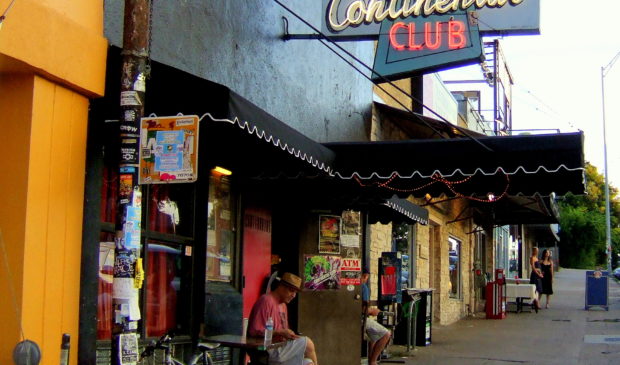Commission: Add music venues in CodeNEXT to help clubs spread through city
Wednesday, January 10, 2018 by
Chad Swiatecki The push is on to make live music venues a distinct business use case in the city’s building code, a move that music industry proponents hope will make it easier for music hot spots to emerge in neighborhoods throughout the city.
By a 7-0 vote, the Austin Music Commission approved a resolution Monday recommending that the city make “live music venue” a building use separate from the existing “bar/nightclub” use that is currently in place. That distinction could make music venues easier to open and subject to a less stringent prior approval and public notice process than what is currently required of bars and nightclub businesses looking to open outside of downtown entertainment districts.
The recommendation goes to City Council with the hope that the change is included as part of the CodeNEXT process that is rewriting much of the city’s land use policy.
During discussion prior to the vote, commissioners said the rising cost of real estate in the downtown core – where many of the city’s music venues are located – makes it necessary to create a sort of release valve that will make it easier to open venues and cultural arts spaces in other parts of the city.
“Council members will have the opportunity to shepherd live music in their districts across the city,” Chair Gavin Garcia said.
“Because of the city’s mobility issues, the closer venues are located to consumers, the better. I hope to see a time where a particular artist could play to distinct audiences on the south side, downtown and the north side in a short time frame without saturating the market.”
Garcia said the classification could make it possible for music venues to qualify for preservation funds provided by the city’s Hotel Occupancy Tax as well as incentive or assistance packages that could be created at the local or state level for cultural attractions.
A draft document that could shape the possible wording in CodeNEXT related to venues gives eight criteria for a hospitality business to qualify as a live music venue, with eligible businesses needing to meet at least five of the requirements. They are:
- has a defined performance stage
- has a mixing desk, sound system and lighting rig
- has backline equipment
- has at least two staff members handling some combination of sound engineering, booking, promoting, stage management and security
- charges a cover or uses a ticketing system for admission
- markets music programming through printed or digital publications
- has hours of operation that coincide with performance times
- programs live music at least five nights per week
Those criteria were determined through a partnership with the city’s Music and Entertainment Division and the Austin chapter of the Music Venue Alliance, which took input from more than 40 music venue owners and operators throughout 2017.
The recommendation and draft document will be handed to staff in the city’s Planning and Zoning Department today, the deadline for additions and changes to be included in the next draft of CodeNEXT.
Brian Block, entertainment services manager for the music division, said one possible result of creating a live music venue use is those businesses could be classified as a cultural arts space in new development projects around the city, with their inclusion helping a developer qualify for a density bonus to build more profit-driving residential or commercial square footage.
Block said city staff anticipates greater diversity in cultural districts around the city if the zoning use for music venues is added. “One big driver is … to have a tool to allow live music venues in as many zoning districts and locations as possible,” he said.
“Especially where it’s a conditional use, being able to distinguish (a music venue) from a bar and nightclub, the community will accept that in more places. The most successful nightlife areas are diverse with music, performance venues, galleries and other cultural attractions, so with having the tools to encourage that kind of nightlife activity, that’s what we hope to see happening in other parts of the city.”
Photo by Librarygroover made available through a Creative Commons license.
The Austin Monitor’s work is made possible by donations from the community. Though our reporting covers donors from time to time, we are careful to keep business and editorial efforts separate while maintaining transparency. A complete list of donors is available here, and our code of ethics is explained here.
You're a community leader
And we’re honored you look to us for serious, in-depth news. You know a strong community needs local and dedicated watchdog reporting. We’re here for you and that won’t change. Now will you take the powerful next step and support our nonprofit news organization?



